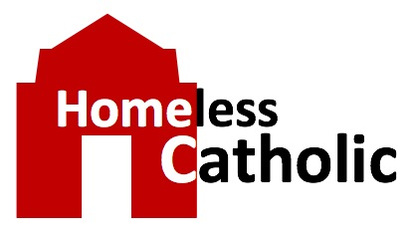Why the message of hope?
Isaiah’s vision is an uplifting account, without doubt intended to provide hope and encouragement. It is implicitly a promise that the current circumstance of God’s people is not, necessarily, their final destiny. To discover the other side of the story, however, we must ask why this message of hope was needed? For an answer, more information is required.
So we go back to the previous chapter to discover just what led to this promise.
Image by Luisella Planeta Leoni
Reflection - Two
By Steve Hall
https://bible.usccb.org/bible/readings/070922.cfm
Isaiah 9:1-8
Matthew 10:24-33
There are two sides to every story. Today’s reading of Isaiah, chapter six, exemplifies the truth in that maxim. Isaiah’s vision is an uplifting account, without doubt intended to provide hope and encouragement. It is implicitly a promise that the current circumstance of God’s people is not, necessarily, their final destiny. To discover the other side of the story, however, we must ask why this message of hope was needed? For an answer, more information is required. So we go back to the previous chapter to discover just what led to this promise.
Our current reading is from chapter six of Isaiah. Chapter five begins with an allegory, one told by God himself. It recounts a man who planted a vineyard. The ground was carefully prepared. Choice vines were selected. A watchtower was built to guard it. A winepress was prepared in anticipation of its yield. But only wild grapes were its produce. In consequence the Lord begs for an answer: “What more was there to do for my vineyard, that I have not done in it?” It is in what follows that we get the other side of the story.
“And now I will tell you what I will do to my vineyard.
I will remove its hedge,
and it shall be devoured;
I will break down its wall,
and it shall be trampled down.
I will make it a waste;
it shall not be pruned or hoed,
and briers and thorns shall grow up;
I will also command the clouds that they rain no rain upon it.
For the vineyard of the LORD of hosts
is the house of Israel,
and the men of Judah
are his pleasant planting;
and he looked for justice,
but behold, bloodshed;
for righteousness,
but behold, a cry!” (Isaiah 5:5-7)
The Lord calls out those who, with good reason, celebrate their country and their lives with music and festivities yet ignore the true source of such benefits.
“They have lyre and harp, timbrel and flute and wine at their feasts; but they do not regard the deeds of the LORD, or see the work of his hands. Therefore my people go into exile for want of knowledge; their honored men are dying of hunger, and their multitude is parched with thirst.” (Isaiah 5:12-13)
The Lord calls out those who would determine their own morality and decide for themselves what is true and what is false.
“Woe to those who call evil good and good evil, who put darkness for light and light for darkness, who put bitter for sweet and sweet for bitter! Woe to those who are wise in their own eyes, and shrewd in their own sight!” (Isaiah 5:20-21)
The consequence of all this was that the people’s hearts were not open to receiving the guidance which the Lord offered. They heard His word as was spoken by the prophets but did not understand the message they were hearing, for their ears were too weighed down by their own teaching. They saw with their own eyes the ever-present works of the Lord, but preferred instead the ‘marvelous’ works of men.
“And he [the Lord] said, "Go, and say to this people: 'Hear and hear, but do not understand; see and see, but do not perceive.' Make the heart of this people fat, and their ears heavy, and shut their eyes; lest they see with their eyes, and hear with their ears, and understand with their hearts, and turn and be healed." (Isaiah 6:9-10)
So there we have it, both sides of the story.
But now we must consider: Is this this account more than a detailed, theologized version of an incident in the history of God’s people. It may be pleasant to think so; but I am troubled none the less.
I start with verse three of Isaiah’s sixth chapter:
“And one called to another and said:
‘Holy, holy, holy is the LORD of hosts;
the whole earth is full of his glory.’”
This is the first part of the hymn with which we begin the Canon, the sacrificial core of the Mass. It is preceded by two notable prayers. The first is the Creed, our profession of faith; the second is found in the exchange between the priest and the congregation. In the name of those gathered and in the name of the Church as a whole the priest acknowledges the purpose of our gathering. In the course of these prayers he gives voice to the propriety of giving praise to the Father. To this the congregation responds: ‘It is right and just.’ A simple line. Just five words. Yet it contains the essence, not only of our gathering, but more importantly the pre-eminent purpose of our gathering. We come together to profess that God is God, the true and only God. We come together knowing that, as part of God’s creation, there is a inherent obligation to offer praise and worship. This is not simply a matter of choice or feelings or nothing better to do. If we truly mean what we say then it is an acknowledgement of the actual order of things: there is God and then there is His creation.
We say we believe. We proclaim that it is right and it is just. We sing with the angels and saints. “Holy, holy, holy Lord God of hosts.” But in spite of this the world we live in proclaims an entirely different scenario; and God, “looked for justice, but behold, bloodshed; for righteousness, but behold, a cry!”
That well worn maxim comes to mind. If you are not part of the solution, you are part of the problem. We have to seriously ask ourselves: are we too a people who 'Hear and hear, but do not understand; see and see, but do not perceive.?
"Since we do not live fully according to the guidance of the Spirit, will the Lord say to us 'In your hearts you devise wrongs; your hands deal out violence on earth.'" (Psalm 58:2)
Our choice has always been to follow the way God has shown or to follow a path of our own design. Right now it would seem that the admonition from of old applies equally well to us.
“They have lyre and harp, timbrel and flute and wine at their feasts; but they do not regard the deeds of the LORD, or see the work of his hands.”
“Woe to those who call evil good and good evil, who put darkness for light and light for darkness, who put bitter for sweet and sweet for bitter! Woe to those who are wise in their own eyes, and shrewd in their own sight!”
Think and think again. We may consider ourselves to be good men; but only holy men can overcome the evil of our time. Know what you see. Be attentive to what you hear.

